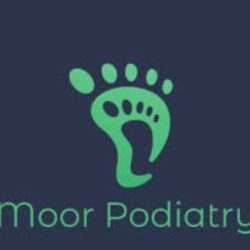What is a podiatrist?
Podiatrists are health care professionals who have been trained to prevent, diagnose, treat and rehabilitate abnormal conditions of the feet and lower limbs. They also prevent and correct deformity, keep people mobile and active, relieve pain and treat infections.
They can give you and your family advice on how to look after your feet and what type of shoes to wear.
How can a podiatrist help?
You may want to see a podiatrist for advice and treatment if you have:-
-
- painful feet,
- thickened or discoloured toenails,
- cracks or cuts in the skin,
- growths such as warts,
- scaling or peeling on the soles, or
- any other foot-related problem.
Podiatrists can also supply orthotics, which are tailor-made insoles, padding and arch supports to relieve arch or heel pain. You put the orthotic device into your shoe to re-align your foot, take pressure off vulnerable areas of your foot, or simply to make your shoes more comfortable.
Even if your feet are generally in good condition, you might consider having a single session of podiatry to have the hard skin on your feet removed, toenails clipped, to find out if you’re wearing the right shoes (take your shoes with you for specific advice on footwear) or just to check that you’re looking after your feet properly.
Podiatrists can also help with more complex foot problems including preventing, diagnosing and treating injuries related to sports and/or exercise
What is the difference between podiatry and chiropody?
There is no difference between podiatry and chiropody. They are two different words describing the same profession. A podiatrist or chiropodist will assess and treat your feet in the same way.
How many podiatry treatments will I need?
This depends on many factors, including the type of problem and individual person. Routine care of superficial foot conditions often requires regular care.
What is a biomechanical assessment?
If you have pain in your feet when walking, standing or running then it is likely that you will require a biomechanical assessment. This involves the podiatrist looking at the positioning of your hips, knees, ankles and feet during walking. If there is a problem with the positioning of the lower limbs then it affects the biomechanics of walking or running and this is what causes the pain. This can often be resolved with orthotics (insoles).
What are your payment terms?
Payment is made after each consultation either by cash or all major debit & credit cards accepted. Fees depend on the type of treatment and any additional charges (such as insole provision) would be discussed and agreed with you.
If I have private medical insurance do I need to pay for treatment?
Each insurer is different in the way that they operate as far as payment is concerned. Some require you to pay for your own treatment and then claim the costs back whereas others allow to invoice them directly. We strongly advise that you discuss this with your insurer prior to arranging a consultation.
I have private medical insurance – am I covered with you?
Thuri Moor of Moor Podiatry is member of the Royal College of Podiatry, and registered with the Health Professionals Council. You will need to check with your insurance company prior to treatment, as some companies require a referral from your doctor beforehand.

